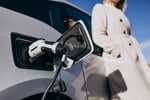Predicting the future is always a hazardous activity. At Loughborough, we are currently in the middle of a study sponsored by BMW (UK) into the Car Dealership of the Future and have just completed the first round of questionnaires with a number of global industry leaders. However, we have decided to put the project on hold temporarily until the EU referendum vote.
You’ll be reading this article after the votes are in, but at the time of writing both sides appear to be conducting a debate based more on shared ignorance and hyperbole than on any rational argument. As the vote at the moment is too close to call, it was felt best to suspend the research as Brexit would potentially affect the Block Exemption Regulations and put the retail automotive sector on a different regulatory framework within two years of any decision.
However, the editor has asked me to give a personal view on what car retailing will look like in 2025. Even without systematic research on the topic, it is possible to make certain assumptions and identify trends.
The rise of manufacturer power
One of the major trends will be the increased power that manufacturers will have over the supply chain. With the rise of digital sales and marketing channels, a large number of manufacturers will follow companies such as BMW in developing complete online sales offerings. Although the percentage of cars purchased this way is difficult to predict over the next 10 years, the current Generation Y will enter the car market and as digital natives are likely to be more comfortable with buying cars online.
With the rise of newer technologies involved in future ultra-low emission vehicles, the existing knowledge base of many technicians will become obsolete with far greater emphasis being placed on computer-based diagnostic systems and software management within the car. These new technologies will give the manufacturer bespoke power over the dissemination of information and the training regimes necessary to service their vehicles. It will also necessitate major investment on the part of the dealer to have the capability to deal with the new technologies.
In a predominately digital age, it is predicted that the role of the manufacturer brand will become pre-eminent over any dealer branding. As a result of the changing technology and the drive for manufacturer brand equity, there are likely to be fewer, but larger dealerships that can handle the level of investment required to service the more sophisticated vehicles and also represent the brand in a more comprehensive manner. This trend has already started and is likely to gain momentum.
The role of dealerships in 2025
In 10 years’ time, dealerships will undoubtedly still be the bedrock for car distribution and servicing in the UK. However, the managing director of a large group told me revenue streams in a decade will primarily come from used vehicle remarketing and servicing. It could also be envisioned that the dealership will provide the ‘click and collect’ new car facility for the manufacturer’s online marketing channel.
What type of staff will dealerships need?
From my perspective, one of the major areas for change over the next 10 years will be in the type of staff a dealership will need to employ. Gone are the days when the salesperson knew more than the customer. A new breed of digitally savvy sales facilitator will be required to engage with customers online as well as face to face.
Perhaps the biggest shift will be in the sophistication required in aftersales. Changing powertrains and the connected (and potentially autonomous) car will require a different type of technical expertise. All technicians will need to be licensed, with background security checks. Car manufacturers are working at the moment to stop vehicle management systems from being hacked when they are being driven. In the future, having your car serviced will be the equivalent of handing your laptop over with all its passwords to a complete stranger. Data security will become a major factor in the dealership of the future.
Doomsday for the independents
Perhaps one of the most interesting aspects of the changes taking place is whether they spell the end of the non-franchised sector for servicing and repair.
The new technologies are likely to be bespoke and require specific tooling. The idea that one diagnostic computer system will be able to address more than one franchise is unlikely. On top of this, the specialised tooling required for EVs and fuel-cell hybrids is likely to be prohibitive for most small garages. Coupled with the specialist training required (which will be controlled by the manufacturer), this presents a major threat to the independent garage sector. Undoubtedly, there will still be a place for tyre and brake specialists, but it does not seem feasible that the independent sector will grow over the next 10 years and it will probably go into decline.
It is impossible to cover all the potential changes in such a short article, but the next decade will undoubtedly require the sector to adapt to very different customer, government and manufacturer expectations.















Login to comment
Comments
No comments have been made yet.